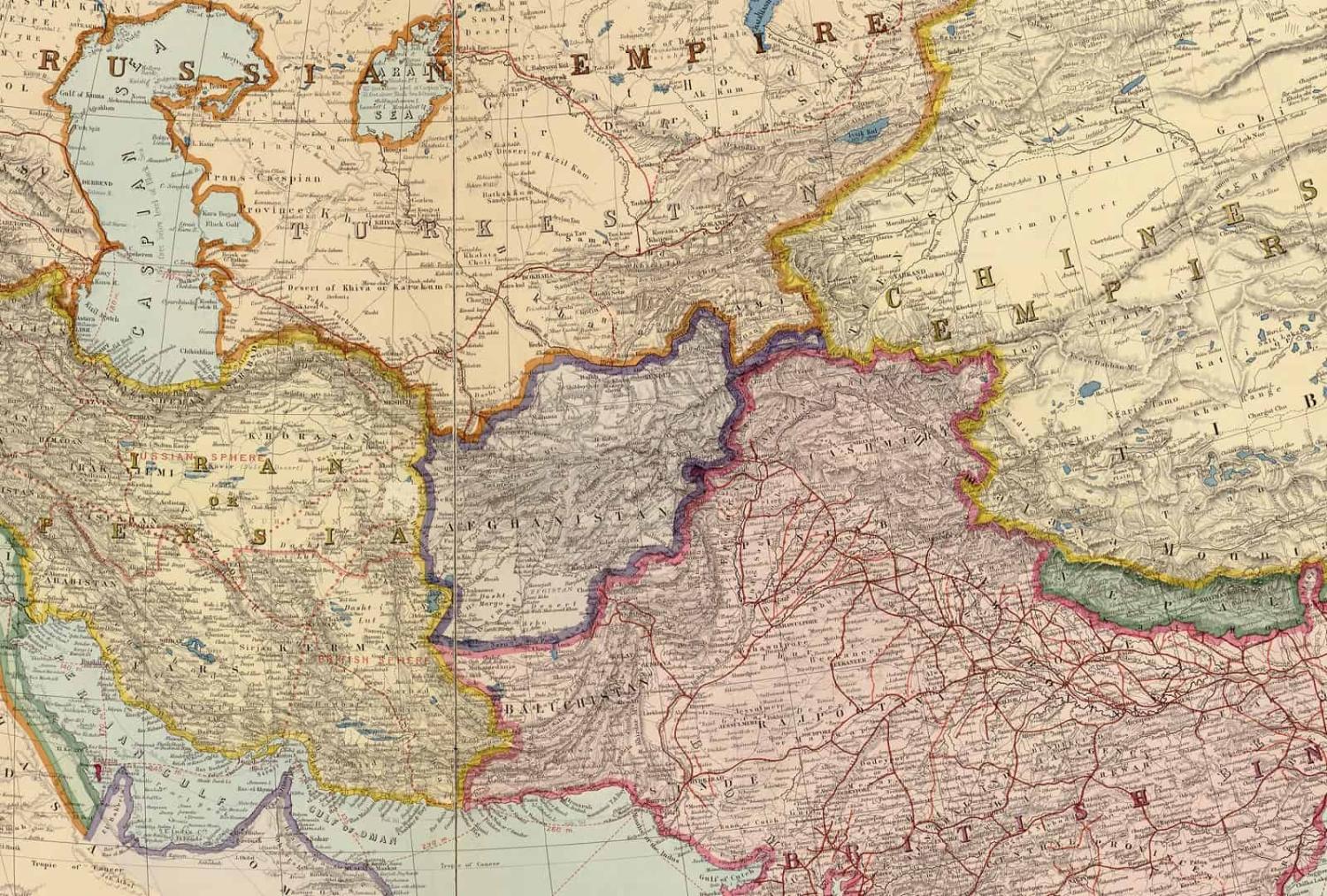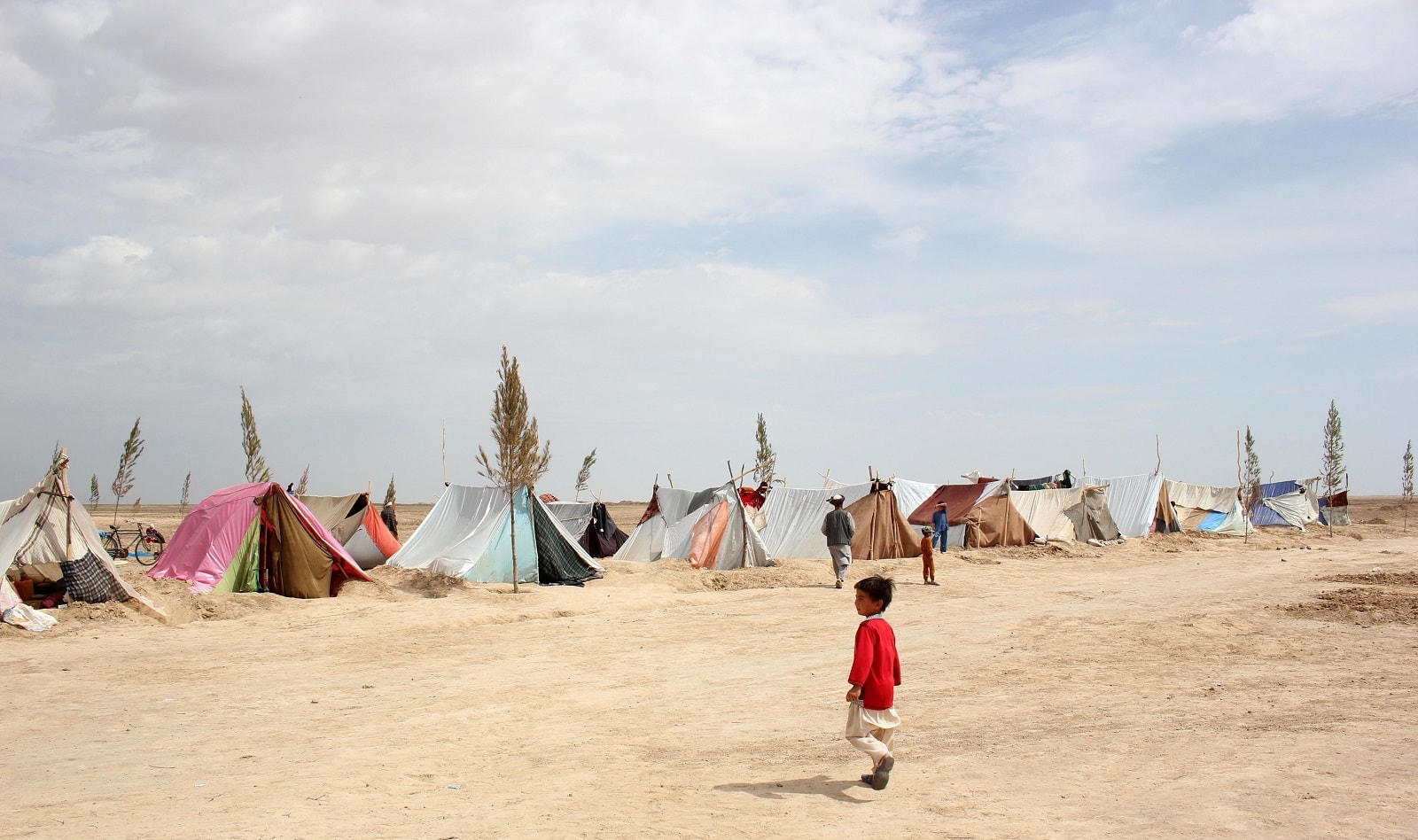Three of the world’s most influential powers have skin in
the game when it comes to preventing another civil war.

There is little that the United States can concur with China and Russia at a time regularly described as a “Second (or New) Cold War”. Yet amid all the ideological differences, one critical mutual interest is to prevent a civil conflict erupting in Afghanistan.
Afghanistan’s geography is significant for all three powers. To the north, it borders landlocked Central Asia, where economic dependence drives the former Soviet states into the Russian sphere of influence. Through the north-eastern Wakhan Corridor, Afghanistan shares a border with China’s Muslim-majority Xinjiang province. And to the east, Afghanistan borders Pakistan, the West’s strategic regional ally since the partition of British India.
Unlike the 2021 collapse of the US-backed Afghan government, the 1992 collapse of the Soviet-backed regime resulted in a chaotic civil war. While the Taliban are a firmly united movement with a defined chain of command, the anti-Soviet Mujahideen were a loose coalition of fractious militias. Upon taking power, these militias turned their guns on each other, devastating Afghanistan from street-to-street and district-to-district. During this period, Afghanistan was coined a “failed state”, where warlords and their militias violently carved fiefdoms with no accountability to a dysfunctional government. It was the anarchy and lawlessness of the civil war that cultivated the perfect environment for al-Qaeda to find safe haven in Afghanistan and plan the September 11 attacks against the United States.
Today, enabling another civil war in Afghanistan poses the same – though greater – security threat, not only to the United States and the West, but also to China and Russia. Unlike the 1990s, the threat today is heightened by the presence of ISKP (Islamic State Khorasan Province), the regional affiliate of ISIS that has a broad appeal for many radicals. ISKP perceives the Taliban as an enemy for negotiating a peace agreement with the United States, seeking ties with China despite their persecution of Muslim minorities, and for not having transnational or pan-Islamist aspirations beyond Afghanistan’s borders.

For Moscow, a turbulent Afghanistan would provide sanctuary for extremist Central Asian terrorist groups. Despite gaining independence from the Kremlin, these disenfranchised jihadists view Central Asian regimes as Russian President Vladimir Putin’s stooges and a continuation of decades-long Soviet rule that effectively outlawed Islam in the region. With up to 4,000 Central Asians having joined Islamic State in Iraq and Syria, the presence of the local IS affiliate in Afghanistan poses a security challenge to the neighbouring region. ISKP could exploit the resentment Central Asian Islamists have towards their repressive secular regimes, with their official newspapers announcing that fighters from Tajikistan have waged suicide attacks. Since August 2021, Central Asian governments have pressured the Taliban to contain the threat of ISKP attacks. In the post-Soviet era, during the Afghan civil war, the Islamic Movement of Uzbekistan (IMU), its Tajikistani wing, and other offshoots, led armed incursions into Central Asian states from their sanctuary in conflict-ridden Afghanistan. Russia has long viewed Central Asia as a buffer zone against potential threats from the south, yet also critical to project its influence into Asia. A return to the chaotic conditions of 1990s Afghanistan, with the added challenge of ISKP, would reignite these security concerns for Central Asia and Moscow.
For Beijing, the risk of a civil war in Afghanistan threatens to capitalise on the increasing disenfranchisement of China’s Uyghur Muslim minority. The Chinese government is accused of widespread human rights abuses towards ethnic Uyghur Muslims, with many analysts describing it as genocide. Uyghur Islamist groups, such as the Turkestan Islamic Party (TIP), were long based in Afghanistan to train militants for warfare in Xinjiang. Recently, the Taliban have made efforts to restrict TIP’s activities to appease China in a bid for economic aid. Since 2017, ISKP has exploited China’s policy in Xinjiang to recruit Uyghur fighters into their organisation as a mechanism to undermine the legitimacy of their Taliban foes and harm their relationship with China. In December 2022, ISKP attacked a hotel in Kabul frequented by Chinese nationals, injuring five of them. A civil war in Afghanistan would leave the Taliban unable to prioritise Beijing’s security interests, creating ripe conditions for ISKP and TIP to orchestrate terror attacks against China.
And for Washington and their Western allies, preventing Afghanistan from becoming a haven for Salafist jihadist groups is paramount in their policy towards the Taliban. The 2020 Doha Deal prioritised the Taliban’s commitment to prevent “the use of Afghan soil by any international terrorist groups or individuals against the security of the United States and its allies”. Two decades after the horror of 9/11, the threat of Salafist terror groups plotting attacks against the West persists; civil war in Afghanistan would be advantageous for this malintent, especially since ISKP is ideologically aligned with al-Qaeda.
While the Taliban are desperately trying to contain ISKP attacks, the international community must refrain from endorsing a civil war with the new generation Northern Alliance or remnants of the former Afghan National Army. Though international appetite for a civil war currently remains low, the possibility of renewed conflict cannot be disregarded. The United States is fatigued from two decades in Afghanistan, whereas Russia and China need regional stability to pursue their regional economic ambitions by connecting South and Central Asia.
Another Afghan civil war risks becoming the next Syria – a gruesome proxy conflict with major powers arming various factions. Instead, it is in the security interests of all permanent UN Security Council members to pressure the Taliban to lift the suspension of higher education for girls, create an inclusive Afghan government through political settlement, and to encourage stability in war-torn Afghanistan. Russia and China should echo the US State Department and European Union’s remarks that they will not support armed conflict. The 1990s witnessed that a disorderly Afghanistan is the perfect organ for terror groups to metastasise.
